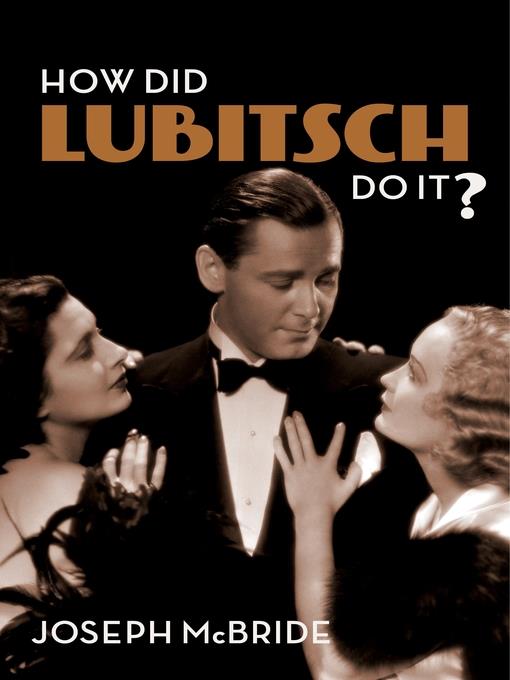
How Did Lubitsch Do It?
کتاب های مرتبط
- اطلاعات
- نقد و بررسی
- دیدگاه کاربران
نقد و بررسی

Starred review from April 30, 2018
Prolific film historian and biographer McBride (Writing in Pictures) delivers his best book yet with this study of Ernst Lubitsch, who helped invent the movie musical with The Smiling Lieutenant and The Merry Widow and perfected the romantic comedy in films such as Ninotchka and The Shop Around the Corner. Though McBride notes that this is “not a biography but a critical study,” he does trace Lubitsch’s life story, from his 1892 birth and middle-class upbringing in Berlin and early success in the German film industry as a comedian and director, to his arrival in Hollywood at star Mary Pickford’s invitation in 1922 and career there as a director and producer up until his fatal heart attack in 1947. However, narrative takes a backseat to explaining to contemporary viewers what made Lubitsch’s work unique, since McBride believes that Lubitsch’s star has waned in recent years in comparison to other Hollywood auteurs. He emphasizes the urbane and wry “Lubitsch touch,” placing the filmmaker’s irreverent but subtle treatment of sex and infidelity within the context of an era of increasingly stringent censorship (in The Merry Widow, the king comes out of the royal bedroom fastening a belt that is too small, and one that obviously belongs to someone who has just visited the queen). Censors “knew what Lubitsch was saying, but they couldn’t figure out how he was saying it.” McBride has created a nuanced, thorough look at an important artist and his art.

May 15, 2018
Director Ernst Lubitsch (1892-1947) spent his early years in Germany working as an actor and director, eventually leaving for more opportunities and greater creative freedom in Hollywood. Once in America, he switched from spectacles to frothy musical fantasies and comedy, employing his "Lubitsch touch" mixing sophistication, irony, and a distinctive sexy, romantic view of the relations between the sexes, all while circumventing censorship with an indirect approach. Film historian McBride (San Francisco State Univ.; Searching for John Ford: A Life; What Ever Happened to Orson Welles?) pens a thoughtful critical study, calling Lubitsch a master craftsman of classics such as Ninotchka and Trouble in Paradise, even employing comedy in the anti-Nazi satire To Be or Not To Be. The arrival of sound films allowed Lubitsch to use clever wordplay and innovative techniques to confound critics and censors who called him vulgar and frivolous. McBride quotes admirers François Truffaut and Orson Welles as well as colleagues such as Jeannette MacDonald and Mary Pickford. VERDICT Though some early Lubitsch films are lost, McBride rescues the director's neglected and underrated reputation, securing his legacy with critical insights and sound scholarship in one of the few full-length appreciations of the artist. Highly recommended.--Stephen Rees, formerly with Levittown Lib., PA
Copyright 2018 Library Journal, LLC Used with permission.

























دیدگاه کاربران